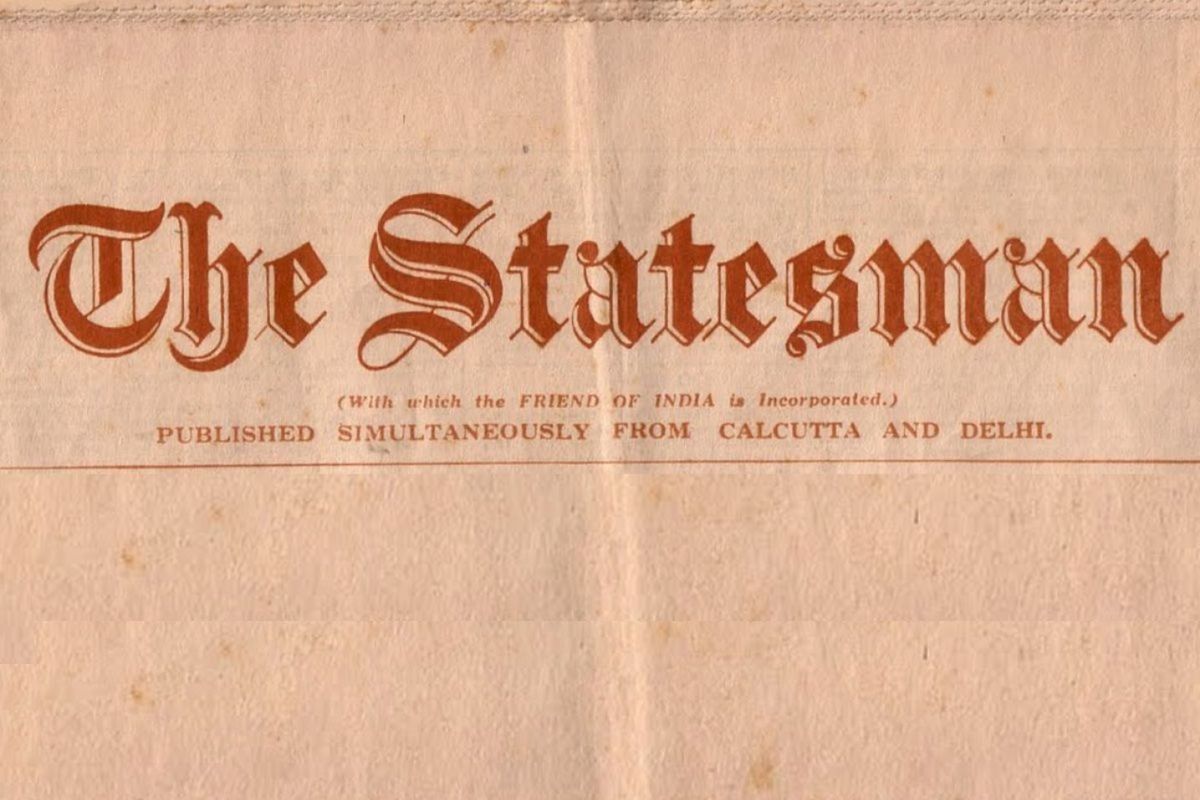Leading women personalities on what it takes to be a woman!
On International Women's Day, The Statesman talked to esteemed women personalities from various fields on what it takes to be a woman in our country and what empowers them.
On this day a century ago, these were some of the news items The Statesman readers got to read about India and the world.

OCCASIONAL NOTE
Mr. Bernard Coventry, who since 1916 has been acting as Joint Agricultural Adviser to five – more recently increased to ten – of the Native States of Central India, has issued an interesting review of the work accomplished in the past three years. His experience confirms him in the belief that the application of scientific principles to the agriculture of the vast area in his charge – much of it a region of “black cotton soil” – would produce big results. The whole of it is practically unbroken ground for the reformer and its agricultural methods are more backward than in any part of British India with which Mr. Coventry is acquainted. Seed for sowing and seed storage are on so low a standard that cultivators are often found sowing 70 per cent more seed than would be necessary under better conditions. Agricultural methods in the preparation of the land and subsequent cultural operations could scarcely be worse. Where, despite these defects, the rich soil produces fine crops the mixing with inferior kinds and the low standards of marketing and trading deprive the cultivator of many benefits which he should enjoy. Lastly, much is to be hoped from irrigation and the checking of erosion. Fortunately it is greatly to the advantage of the Durbars that there should be an improvement. Sometimes half their revenue is derived from the small percentage of irrigated land. Provided the necessary specialists can be trained the future appears to be full of hope.
Advertisement
SCENE IN A POST OFFICE
Advertisement
A serious assault on Babu Rakhal Chunder Chuckerbutty, Deputy Postmaster, Dhurrumtolla Street Post office, was reported on Tuesday afternoon. It is alleged that an Anglo-Indian girl named Coombs, walked into the Post Office armed with the leg of a toilet-table and struck the Deputy Postmaster over the eye, while he was sitting at his desk. Information of the assault was sent to the outpost in Grant Street and Patrol Sergeant MacIntyre went to the Post Office, where he found the girl in hysterics and the Deputy Postmaster lying on the floor unconscious, bleeding from a wound in the forehead. A charge of causing hurt to a public servant was preferred against the girl, who was placed under arrest. It is stated that some days ago the girl went to the Post Office for payment of a money order and that some trouble arose over the transaction.
INCOME TAX LAW
MADRAS, SEPT 2
At the High Court today the officiating Chief Justice and Justices Oldfield and Seshagiri Iyer were engaged in hearing a reference from the Board of Revenue on an important question of Income Tax which affects the whole of the Nattrikottai Chattie and other traders and merchants resident in India but trading outside British India. The question is whether income derived from a business carried on outside British India by persons residing within India is liable to tax when such income is not actually received in British India but the assessee issued general instructions from British India to his agents abroad and controls the business from British India. The reference arose from an interpretation given to a section of the act by the Advocate-General. The case is proceeding.
RANGOON PILOT S EXPERIENCES
RANGOON, SEPT 2
Mr. R. Trattles, of the Rangoon Pilot Service, who has resumed duty after three years’ active service in the Air Force, tells a vivid story of his experiences in German prison camps. He and three others discovered in a wall of their room a dictaphone which they destroyed after expressing their opinion of their keepers. Attempts to extort information from officer prisoners were frequent but always failed. Russian prisoners who died of starvation were placed in a tuberculosis ward and certified as having died there. Bribable German guards gave the prisoners newspapers from which they learnt of the progress of the war. Mr. Trattles and other officers were released a month after the armistice, having undergone great privations in four prisoners’ camp.
GOVERNMENT SERVANTS AND POLITICS
MADRAS, SEPT 2
The Hindu understands that the Madras Government have made the following addition recently to Government servants’ rules:- The attendance of officials at political meetings of any description except on duty is strictly prohibited. A meeting at which political questions are discussed, even though other questions are discussed as well, is for the purposes of Rule 21 a political meeting. Where a meeting convened ostensibly for a non-political purpose begins to assume a political tone, it is the duty of any Government official present to leave.
Advertisement